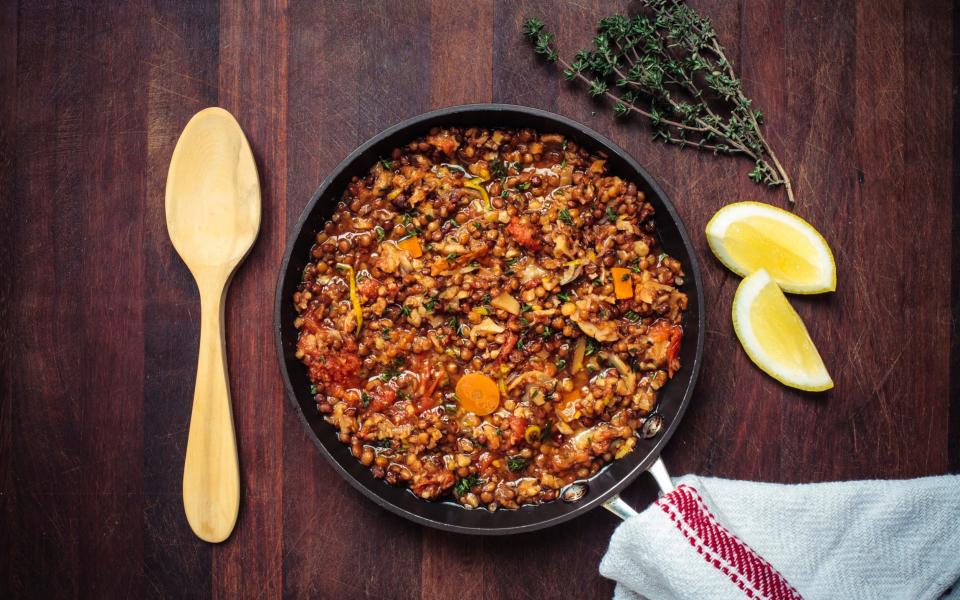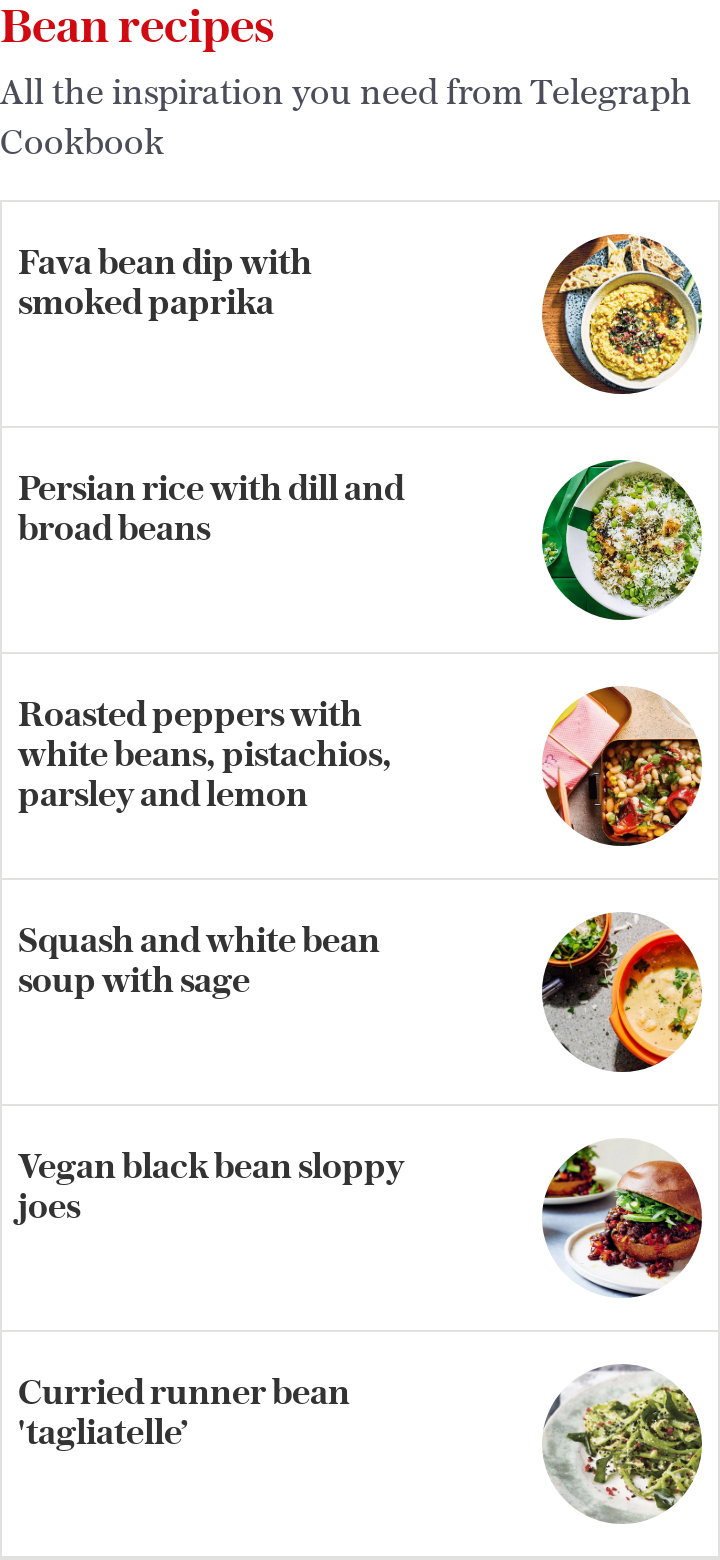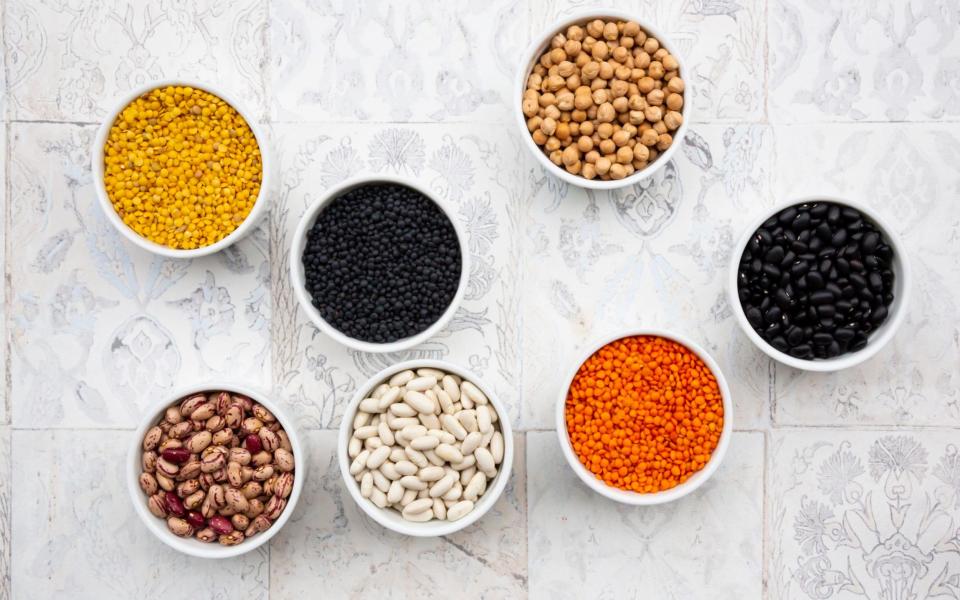Eating more pulses and legumes could cut carbon emissions – and improve our health

They’re the edible seeds of legume plants, high in protein and fibre: culinary staples used to bulk out soups and stews, salads and side dishes and lend a mild, earthy, nutty flavour.
Associated with the vegetarian counterculture which emerged in southern California in the 1970s – rejecting industrialised food and instead celebrating organic, local, seasonal produce, and whole grains – pulses including beans and lentils have since become mainstream ingredients in the UK.
This week, scientists at New York University’s Department of Environmental Studies have produced compelling new evidence in favour of pulses as an environmentally-friendly dietary choice, in a study published in the journal Nature Sustainability – which suggests that switching meat for plant protein foods such as lentils, beans and nuts could remove more than a decade of our carbon dioxide emissions from the atmosphere.
According to the study’s authors, a drastic reduction in demand for meat and shift in global food production to plant-based diets by 2050 could remove as much as nine to 16 years of global fossil fuel CO2 emissions and “effectively double” the earth’s rapidly shrinking carbon budget.
The amount of space needed to grow animal-sourced food makes up 83 per cent of the earth’s agricultural land: but pulses and nuts use a small fraction of the land required to produce meat and dairy, while still providing nutrients. In the study, scientists analysed areas where the production of animal-sourced food suppresses native ecosystems, vegetation and forests, which could offset carbon emissions if they were able to regrow.

“Restoring native forests could buy some much-needed time for countries to transition their energy grids to renewable, fossil-free infrastructure,” said Matthew Hayek, principal author of the study.
The greatest potential for forest regrowth was found to exist in high and upper-middle income countries, where “scaling back on land-hungry meat and dairy would have relatively minor impacts on food security.” Co-author Nathan Mueller described the potential for restoring the earth’s ecosystems as “substantial”, adding that “land use is all about trade offs”.
As the call to address climate change becomes more acute (in June 2019, the UK became the first major economy to pass a net zero emissions law, committing to cut greenhouse gas emissions in the UK to almost zero by 2050), the question of whether to adopt a plant-based diet for the benefit of the environment is hotly debated.
When the UN released a report last year suggesting that a plant-based diet could cut emissions, British beef farmers called the report 'misleading'; some argue that meat, if carefully raised using regenerative farming methods, can be good for you and the planet; yet another study has found that a ‘flexitarian' diet which includes one portion of meat a day has a lower carbon footprint than a vegetarian diet that includes dairy.
Health benefits
There’s no denying that lentils, beans and nuts can be a healthy, nutritious and affordable part of any diet. Pulses (edible seeds that grow in a pod, which include beans, lentils and peas) are a cheap, low-fat source of protein, fibre, vitamins and minerals, and count towards your recommended five daily portions of fruit and vegetables. Eating a diet high in fibre is associated with a reduced risk of heart disease and type 2 diabetes.

“Lentils and beans are nutritional gems, packed full of nutrients in a convenient format that can be pulled out the cupboard at a moment's notice,” says registered dietician Laura Clark. “Versatile and capable of absorbing the flavours in any dish, they are an easy way to boost fibre contents in the diet, feed our gut bacteria and provide a source of plant-based protein to benefit our bodies." Tinned varieties require no preperation, and can be chucked straight into sauces, stews or curries; dried pulses need to be soaked and cooked before they can be eaten.
"Fibre is lacking greatly in the British diet – we should be aiming for 30g a day," says nutritionist Rhiannon Lambert. "Lentils and beans also contain vitamins and minerals such as calcium, iron, magnesium and zinc, niacin, folic acid and vitamin B6. A lot of legumes don't contain gluten, making them suitable for coeliacs. Lentils, beans and nuts are also complex carbohydrates, which means they are slowly absorbed by the body, slowly releasing energy."
Legumes are also low in saturated fat, says nutritionist Clarissa Lenherr, "unlike dairy and red meat. UK guidelines recommend that adult males consume less than 30g and women less than 20g per day.

"Introducing legumes as a protein source can therefore reduce your consumption of saturated fats, which have been linked to cardiovascular disease risk. 100g of lentils contains around 9g of protein, and beans contain anywhere between 7-9g of protein per 100g portion. However, be mindful of how quickly you introduce legumes into your diet as they can cause stomach upset. Start with small portions, and build up. To incorporate them into your diet, replace meat for beans in classic dishes. Use lentils instead of mince in lasagne or bolognese, replace mince in chilli con carne with red kidney beans, or use black beans to make black bean burgers."
Meanwhile, nuts are a source of healthy fats and often contain a blend of monounsaturated fats, omega-3 and omega-6. "Walnuts, for example, contain rich amounts of omega-3 which is anti-inflammatory and heart-healthy. Regular consumption of nuts, as part of the Mediterranean diet, have been linked to weight loss," Lenherr points out, and nut consumption has been linked to beneficial cholesterol levels.

Aim for balance
If you think that you’re eating too much meat, or are eating it every day of the week, then dietician Nichola Ludlam-Raine suggests starting with Meat Free Mondays. "Some people assume that adopting a vegetarian or vegan diet will result in eating less protein, but it can be found in many foods such as soya, nuts, beans and pulses, dairy, eggs, tofu, rice and grains.
"However, there are nine essential amino acids that we must get from our diet (as our body cannot make them), and unfortunately plant-proteins such as beans and pulses do not all contain all of them. 'Protein combining’ and good planning can guarantee your intake of all nine. Ensure that your plate is still well balanced, perhaps with two handfuls of veg, one portion of protein, one portion of carbohydrates and one small portion of healthy fats, like a drizzle of olive oil."

